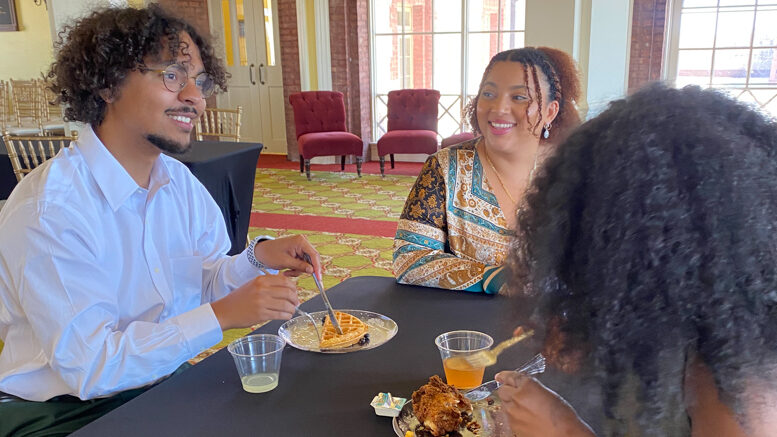By Hannah Duffey
Soul food is one of those sweet and savory comfort foods that date back for centuries. Dishes like fried chitlins with a side of okra, collard greens, cornbread and macaroni and cheese are all recipes that helped give it meaning and definition.
But soul food is about more than just food. In fact, it is more of an identity factor in the black community.
This is why the Black Student Union has brought soul food Sunday to campus once a semester so that students can experience a key part of their identity, and what makes them who they are.
“When you first ask the questions of what soul food means, the first thing I think of is home,” Ashley Chatmon, President of BSU said. “Even when I first moved down here, the things that I was craving were soul food classics that my mom makes. When that food is there, it is just such a sense of community. It makes me think of everything good that comes with home — the safety, the warmth and the comfort.”
A common thing in black families is Sunday dinner — a time where everyone is gathered around the table sharing a laugh with one another over a meal.
That feeling was present on a recent Sunday at Flagler with all of the students gathered around the table with another, bonding over the same common theme: food and conversation.
“Sunday dinner is a time where everyone is brought together and presents a sense of community,” Marcus Crain said.
The core of the term “soul food” originally started in the southern part of the United States, or as some call “the deep south.” This cooking started during American slavery when the term “soul” was often used to describe African American culture.
During this time there was racial discrimination by laws and societal norms, and to start the change of this inequality, the “Black Movement” started. Hence when soul food and soul music became the pillar and perfect epitome of the Black culture.
In 1965, a man named Amiri Baraka brought public light to the situation and published an article called “Soul Food.” This article actually became the beginning of a movement that would establish Black Americans and their identity through food.
Before Baraka invented “soul food,” the cuisine was often defined as plantation or creole food. But it was more than just a meal, and brought a sense of community and feelings for home.
“Soul food is a culture that I grew up on,” Spencer Hooker said. “Whenever I see or taste soul food, it reminds me of home or family. It is kind of that thing that culture brings me in.”
Although soul food is cooked in different ways, the richness is being tied to certain techniques and cooking styles. In the African American community, the way that it is prepared is where we see new recipes birthed.
“My mom is trying to pass banana pudding down to my sister and I,” Chatmon said. “Now my sister and I make it every once in a while.”
African Americans continue to pass down soul food recipes from generation to generation, and these recipes are always on display as the main dishes at most family gatherings.



Be the first to comment on "Soul Food Sunday carries on African American tradition at Flagler"